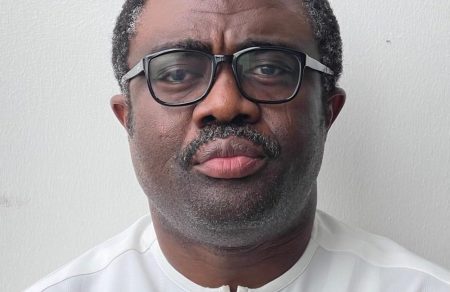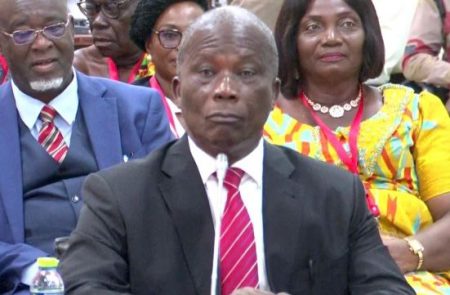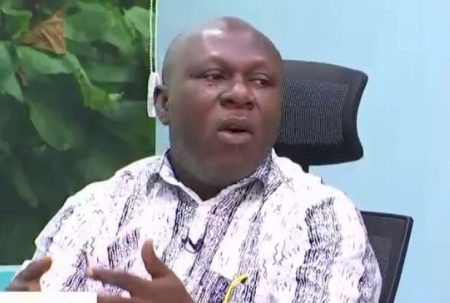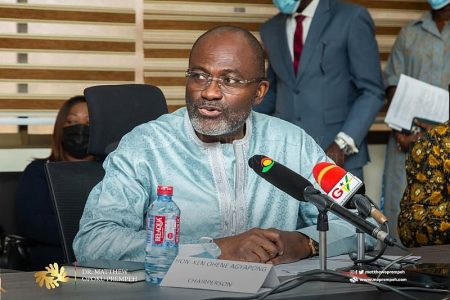Frederick Worsemao Armah Blay, a former National Chairman of the New Patriotic Party (NPP), has offered a staunch defense of the Akufo-Addo administration, characterizing it as one of the most successful governments in Ghana’s history. He contends that despite operating under challenging circumstances, former President Akufo-Addo delivered a commendable performance that will be favorably reassessed by future generations. Blay attributes the current criticism of the NPP government to a lack of perspective, suggesting that the administration’s accomplishments will become more evident with time. He acknowledges that public opinion may currently be unfavorable, but insists that this does not detract from the substantial achievements of the government. Blay’s perspective, heavily influenced by his close involvement as party chairman and cabinet member, paints a picture of a government that navigated difficult terrain with resilience and effectiveness.
Blay’s argument hinges on the idea that the Akufo-Addo government inherited a precarious economic situation, implying that the subsequent challenges faced should not be solely attributed to their policies. He argues that the administration’s actions, while perhaps unpopular in the short term, were driven by principled leadership and aimed at long-term stability and growth. This principled approach, he suggests, sometimes necessitates making difficult decisions that may not be immediately embraced by the public. Blay emphasizes the importance of evaluating the government’s performance in its entirety, considering the broader context and the long-term implications of their policies. He believes that history will ultimately vindicate the Akufo-Addo administration and recognize their contribution to Ghana’s development.
Central to Blay’s defense of the Akufo-Addo government is his unwavering support for former Finance Minister Ken Ofori-Atta. He characterizes Ofori-Atta as a highly competent and dedicated finance minister who served the country with unwavering commitment. Blay laments the current scrutiny and accusations facing Ofori-Atta, framing them as unfair treatment of a public servant who diligently performed his duties under challenging circumstances. He contrasts Ofori-Atta’s current predicament with his past performance, emphasizing the contributions he made to the country’s financial stability. Blay’s defense implicitly suggests a disconnect between the accusations against Ofori-Atta and the reality of his service, implying a possible misinterpretation or exaggeration of events.
Blay’s unwavering support for Ofori-Atta extends to a critique of the ongoing investigation into corruption-related offenses. He questions the validity of the accusations, suggesting that they are politically motivated and lack substantial evidence. The fact that Ofori-Atta has been declared wanted by the Office of the Special Prosecutor and listed on Interpol’s red notice, in Blay’s view, does not necessarily equate to guilt. He implies that these actions may be part of a broader effort to discredit Ofori-Atta and damage the reputation of the Akufo-Addo administration. Blay’s defense of Ofori-Atta raises questions about the due process being followed and hints at the potential for political maneuvering within the investigation.
Blay’s argument ultimately rests on the belief that the Akufo-Addo administration acted in the best interests of Ghana, despite facing significant challenges. He points to the difficult circumstances inherited by the government, suggesting that they inherited a system fraught with challenges. These pre-existing issues, in his view, significantly constrained the government’s ability to implement effective policies and achieve desired outcomes. Blay argues that despite these constraints, the administration made considerable progress in various sectors, laying the foundation for future growth and development. He portrays the Akufo-Addo government as committed to long-term solutions, even if those solutions required short-term sacrifices and unpopular decisions.
Blay’s perspective offers a stark contrast to the prevailing narrative surrounding the Akufo-Addo administration. While acknowledging the existence of criticism, he attributes it to a shortsighted view that fails to appreciate the long-term implications of the government’s actions. He emphasizes the need to evaluate the government’s performance within the broader context of the challenges faced and the long-term goals pursued. Blay’s interpretation effectively reframes the narrative, shifting the focus from perceived failures to a broader assessment of the government’s overall performance. This reframing encourages a reassessment of the administration’s legacy, suggesting that a more nuanced and comprehensive analysis is necessary to arrive at a fair judgment.














